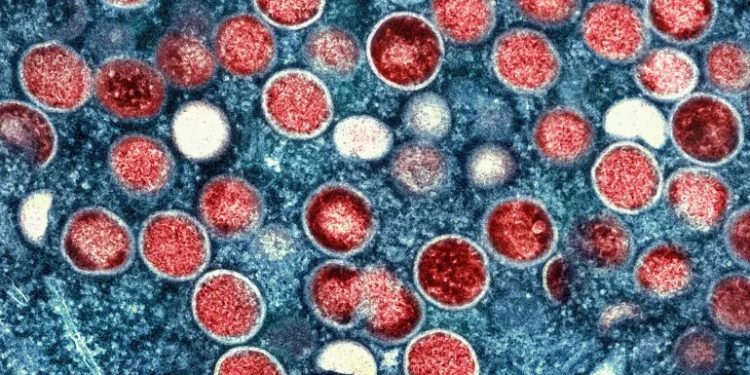By Mackie M. Jalloh
Sierra Leone has officially declared an outbreak of Mpox (formerly known as monkeypox) on January 13, 2025, with four confirmed cases reported by January 16, 2025.
Whilst no fatalities have been recorded, the government and international health organizations, notably the World Health Organization (WHO), are coordinating a comprehensive and urgent response to control the spread of the virus.
The outbreak has raised significant public health concerns, with cases confirmed in the Western Area and Tonkolili District, prompting an intensified effort to protect the population and prevent a larger outbreak.
As of mid-January 2025, Sierra Leone has reported four confirmed cases of Mpox, with the majority originating from the Western Area, including the capital, Freetown. A fourth case was identified in Tonkolili District, which is located in the northern part of the country.
Mpox is a viral disease that is transmitted through direct contact with infected animals, humans, or contaminated materials. The symptoms are similar to those of smallpox, though generally less severe. Symptoms include fever, muscle aches, fatigue, and rashes that can lead to lesions, which can be disfiguring.
Whilst government has confirmed that there have been no reported deaths as a result of the outbreak, the situation has nonetheless raised alarms within the Ministry of Health and WHO due to the potential of the virus to spread rapidly if not managed properly.
The government of Sierra Leone, with the guidance and support of WHO, has initiated a multifaceted response to contain the outbreak and prevent further spread. Such response includes case identification, surveillance, public awareness campaigns, and strengthening health system preparedness. Whilst such measures are aimed at minimizing the spread of the virus, health officials have also focused on ensuring access to vaccines and therapeutics to reduce the severity of illness in those affected.
WHO has swiftly responded to Sierra Leone’s request for assistance, committing resources and expertise to control the outbreak. WHO is leading the international support in collaboration with the Sierra Leone Ministry of Health and various stakeholders.
One of the key priorities is enhancing the surveillance system to identify and track cases quickly. Such includes case identification, contact tracing, and follow-up visits to prevent the virus from spreading beyond the initial cases.
To ensure the best possible care for those affected, WHO is focusing on case management, offering support to local healthcare facilities in isolating patients and providing them with home-based care when necessary, all in a bid to ensure that patients receive the appropriate treatment whilst minimizing the risk of further transmission.
Another critical aspect of the response is laboratory support. WHO has mobilized laboratory supplies and is working to ensure quality control, including genomic sequencing to better understand the genetic makeup of the virus and its transmission patterns. Such efforts are aimed at ensuring an informed, evidence-based approach to control the outbreak.
A crucial component of the response strategy involves public awareness and information dissemination. WHO and the Sierra Leonean government are working together to communicate the risks of Mpox to the public. By educating the community about the symptoms, transmission routes, and preventive measures, the aim is to reduce panic and ensure that people are equipped with the knowledge to protect themselves.
In addition to the efforts, WHO is working to ensure access to vaccines, therapeutics, and other medical countermeasures. Such includes not only providing vaccines to those who have been in contact with infected individuals but also ensuring that there are adequate supplies to prevent further outbreaks.
WHO is also collaborating with other international partners to provide financial, technical, and in-kind support to Sierra Leone. Such includes the provision of essential medical supplies such as personal protective equipment (PPE), vaccines, and antiviral medications, to ensure that health workers are well-equipped to deal with the outbreak.
The swift and coordinated international response underscores the importance of global solidarity in managing health crises. As Sierra Leone navigates this challenging public health issue, the support from international organizations like WHO is critical in ensuring the country has the resources and expertise needed to protect its population.
The declaration of an Mpox outbreak in Sierra Leone has highlighted the vulnerabilities that still exist in managing infectious disease outbreaks in the country. However, the strong, coordinated response from the Sierra Leone government and WHO provides hope that the spread of the virus can be contained. With the ongoing surveillance efforts, case management protocols, and public health campaigns in place, the situation can still be managed effectively.
The outbreak also serves as a reminder of the importance of robust healthcare systems and international collaboration in responding to emerging health threats.
As the situation continues to unfold, the global community will be watching closely to ensure that Sierra Leone’s response remains effective and that the outbreak does not escalate further.











